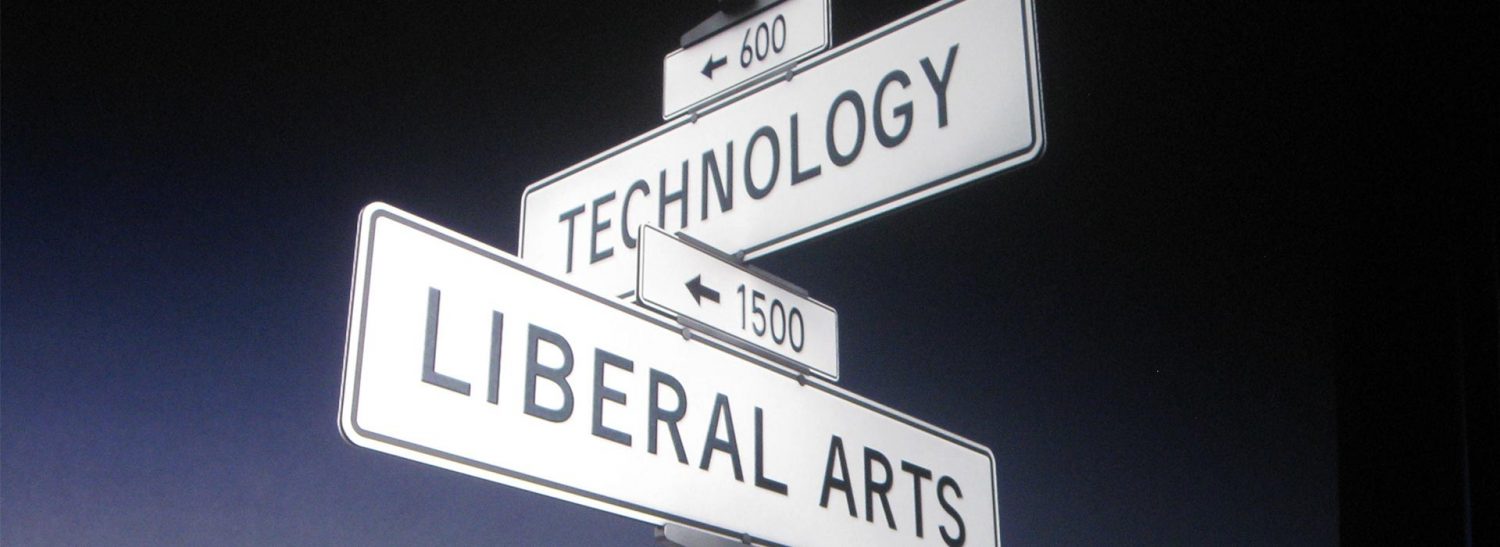Choosing Electives in the Liberal Arts as an Engineering Student
Steve Jobs famously said that part of Apple’s ability to create almost magical products is tied to how they combine technology and liberal arts. Jobs said:
“It’s in Apple’s DNA that technology alone is not enough. It’s technology married with liberal arts, married with the humanities, that yields the results that make our hearts sing.”
When I was an undergraduate electrical engineering student at the University of Texas at Austin in the 1990s, I also realized that “technology alone is not enough”. I had a long list of required classes including various types of calculus, circuit analysis, algorithms, computer programming, modern physics, and other deeply technical courses. I enjoyed these classes, but I knew I needed more to become person I wanted to be when I graduated.
Fortunately, my degree plan also included a few free electives that I could use to select courses from outside the engineering department. I put a lot of thought into which classes to choose. Even at that young age, I didn’t want to take easy classes that wouldn’t challenge me. However, I also wanted a break from the rigor of my technical classes. I remember reading through the expansive course catalog to see what options would pique my interest and also expand my understanding of the world.
I chose three electives from the liberal arts section that would contribute more to the business leader I am today than any of my technical courses. They were courses in Environmentalism, Black Literature, and Gandhi.
Environmentalism
My Environmentalism elective explored how humanity impacts the environment in significant ways that last for generations. I took this class way before I knew anything about the science of climate change. Being a huge fan of science fiction, I had a deep belief that science would be the key to solving humanity’s problems. However, this class taught me that science could be used to cause great harm to people and the planet. In fact, it takes concerted effort to make sure that science always considers the preservation of life as an absolute first principle.
One of the readings in this class was Rachel Carson’s Silent Spring, and I learned how DDT had revolutionized agriculture, medicine, and several other industries. However, DDT also had a devastating impact on the environment including human and animal life.
As a leader, this course prepared me to always consider the impact of the products we build. This includes the impact on the people who use those products as well as the toll on the people who build them.
Black Literature
My Black Literature elective built on my already deep interest in the Harlem Renaissance and the Black Civil Rights movement that formed in high school. My junior and senior major projects in my high school Honor’s English courses were on Langston Hughes and Malcolm X.
This college level course exposed me to other writers and poets from the United States but also from the African continent. It expanded my understanding of the beauty of my people’s struggle and how words can channel the often untold truths of our lives.
As a leader, this course prepared me to be unapologetically Black. I have been the first Black Manager experienced by many of the people on my teams. In some cases, I was the first Black employee at the smaller companies where I’ve worked. So, I’ve faced my share of doubt. When faced with challenges at work, I recall the words of the Black voices from this class and find ways to calmly guide my teams to success.
Gandhi
My class on Gandhi taught me about the life of the famous activist who used non-violent resistance to achieve India’s independence. I learned about Satyagraha which means “truth-force”. Combined with the principles of Ahiṃsā (“avoidance of violence”) and Tapasya (“self-sacrifice”), I learned how the disciplines of civil resistance can free a nation.
As a leader, this course taught me that I have to show my teams that anything I ask of them are things I’m willing to do myself. I also treat everyone with dignity and respect which honors our shared humanity. Perhaps the most impactful lesson of this course was the importance of exhibiting patience and compassion when encountering difficulty. Utilizing these practices strengthens the bonds between myself and the people I lead in ways that many managers struggle to achieve.
Summary
If you’re an electrical engineering undergraduate student (or any highly technical major), I encourage you to carefully select your electives. Consider liberal arts courses to complement your studies. This will make you a better person, and, if you decide to go into leadership, you’ll be better positioned to support your teams.
